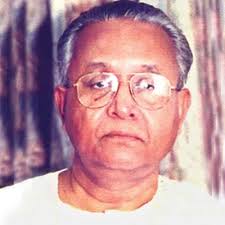Killing of Bangabandhu and global politics
Pakistan conspired to kill Bangabandhu Sheikh Mujibur and patronised the anti-liberation reactionary forces of Bangladesh to cre

Bangabandhu Sheikh Mujibur Rahman proved that socialism can be established through votes in parliament. Socio-political changes brought about by Bangabandhu Sheikh Mujibur Rahman were unique indeed. The aim was to transform the society by establishing socialism in a democratic way and make it functional. He declared that he would not import socialism of a typical type from other countries but he would form a socialist society keeping democracy and people’s right undisturbed.
Those who say that BAKSAL was a menace must answer how BAKSAL could be the root cause of all disasters that followed the 4th amendment to the constitution. When Bangabandhu was assassinated, BAKSAL was then not in operation. At the very outset of launching of BAKSAL programme, he was brutally assassinated. How could a system that did not come into effect be responsible for the entire mishap?
Those who are critics also must know why and under what circumstances Bangabandhu had to introduce BAKSAL. The country had been ruled under the parliamentary system for three years. The enemies of independence took advantage of the democratic environment prevailing in the country. On one hand, there was full-fledged democracy and on the other terrorism and armed rebellion. The result was anarchy. The situation was made so horrible that Bangabandhu had to resort to a single party to unite the entire nation excepting the enemies of the people.
The 4th amendment to the Constitution was an attempt
to bring about a radical change in the then social,
economic and political order. Many call it a Marxist
programme but Bangabandhu made it clear that he did
not follow any system of any other countries like the
Soviet Union or even the Western hemisphere.
Those who say that Sheikh Mujib killed democracy by forming a single party denying opposition the right to do politics are not correct as the programme of forming one party was probably not going to be a permanent arrangement. He told the parliamentary party meeting that the measure taken then was temporary and once the situation was brought under control he would revert to democracy. He even wanted to go for a referendum on that issue. But all MPs told that steps taken by Bangabandhu were final as none would oppose him. This is how the 4th amendment to the constitution was made operative.
The 4th amendment to the constitution was an attempt to bring about a radical change in the then social, economic and political order. Many call it a Marxist programme but Bangabandhu made it clear that he did not follow any system of any other countries like the Soviet Union or even the Western hemisphere. What he did exactly was a system introduced by himself that suited the people of the country. Democracy and social justice were the core principles of his second revolution.
In fact the conspiracy that killed him was directly associated with the global politics. The world situation especially in South Asia was different then. The Western hegemony over Asia was also responsible for Bangabandhu killing. Since the Indo-Soviet axis aided the creation of Bangladesh, the newly independent country became the target of imperialist forces. Pakistan could not accept their defeat in the Bangladesh’s War of Liberation in 1971. They conspired to kill Sheikh Mujib and patronized the anti-liberation reactionary forces of Bangladesh to create a ground for killing Bangabandhu. The anti-liberation and counter-revolutionary forces deteriorated law and order by killing, looting and burning jute godown. These forces killed five members of parliament. Pakistan had chosen some members from Bangabandhu’s cabinet, officials from bureaucracy and some ambitious army personnel. They held several meetings with Mushtaque and General Zia to implement their plot to kill Bangabandhu. They were worried about the policy and steps taken by Bangabandhu to reconstruct Bangladesh and make it a dignified one. However, Bangabandhu gave Bangladesh a secular constitution. He declared a programme of second revolution to build Bangladesh as a developed country. His government prepared first five years plan in 1973. In the following year the country witnessed a GDP growth of over 9 percent, highest ever till now. Considering Bangladesh’s progress towards development, the defeated forces of 1971 unleashed sabotage to destabilize the country. Finally they succeeded to kill Bangabandhu on August 15, 1975.
In fact the brutal killing of 15th August, 1975 in Bangladesh was nothing but a counter-revolution. When one speaks about counter-revolution certainly there was a revolution in Bangladesh and we call it a socio-political revolution through which Bangabandhu Sheikh Mujib desired to make the country free from sub-colonial power Pakistan and then to change the socio-political order of independent Bangladesh. It was an arduous struggle that originated mainly due to exploitation and economic disparity between the East and West. Bangabandhu mobilized the public opinion during his 23 years movement against Pakistani rulers. He played a vital role to add issues like democracy, exploitation and economic disparity, secularism, 6-point and the movement based on language. The 6-point programme, the magna carte of Bengalis got popular support and paved the way for movement for independence. The Pakistani rulers conspired to foil the movement led by Bangabandhu and attempted to kill him time and gain during 24 years of movement. President Yahya formed military tribunal to kill him by organizing camera trial. But that attempt also failed due to international pressure. The irony of fate is Pakistan and their foreign allies and local agents succeeded to kill Bangabandhu in independent Bangladesh.
Dr S A Malek is a former Political Adviser to the Prime Minister, Member of Parliament, Secretary General of Bangabandhu Parishad and Columnist



